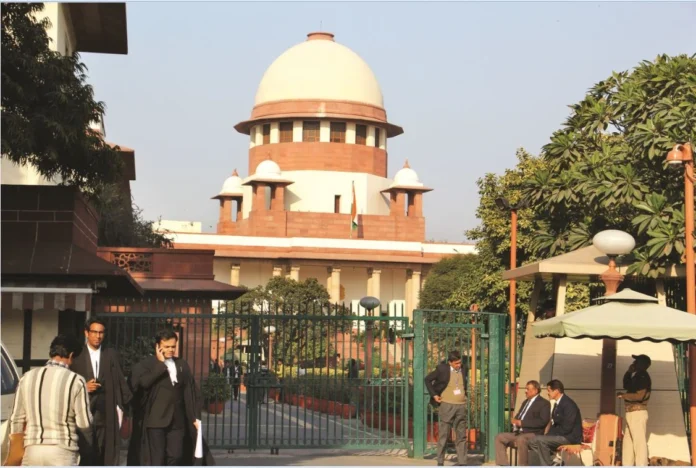The Supreme Court has expressed its displeasure against Tamil Nadu Governor RN Ravi for seeking President’s nod over the Bills, which were already reconsidered and assented by the State Legislature for a second time after the Governor sent it back.
The Bench of Justice JB Pardiwala and Justice R Mahadevan on Monday reserved its verdict on petitions filed by the Tamil Nadu government against Governor Ravi’s refusal to grant assent to several bills passed by the State Legislative Assembly, including those concerning the appointment of Vice Chancellors to State Universities.
Appearing for the State, Senior Advocate Rakesh Dwivedi confirmed that the Bills which were reconsidered and passed a second time by the State legislature were sent to the President of India.
Noting that under Article 200 of the Constitution, apart from assenting to a Bill, a Governor could either withhold assent or refer the bill the President, the bench observed that once the Governor sent the Bill back to the Legislature, the option under Article 200 to refer the bill to the President ceased to exist.
It further noted that in cases where the State legislature passed the bill again, the Governor would be left with no other option than to grant his assent.
The State approached the top court of the country seeking directions to the Governor/President to decide or give assent to the Bills passed by the State legislature in a time-bound manner.
Senior Advocate Dwivedi contended that the Governor, by indefinitely withholding assent on these Bills, was holding the entire State to ransom. In such a situation, the Court must intervene, he added.
The Bench pointed out that if the Governor did not communicate to the State on the issues for which the Bill needed reconsideration, the entire exercise of the Bill being reconsidered would be rendered an ’empty formality’.
Nothing was said at all while sending the Bill back to the State Assembly. The reconsideration of the government could not be expected to be in plain air, it added.
The Bench further reiterated its February 6 observations that the Governor appeared to have ‘devised’ his own procedure in withholding assent to several bills passed by Tamil Nadu’s Legislative Assembly, thereby rendering the Constitutional provisions moot.
If the Governor gave reasons for sending the Bills back, the State may look into it. By not stating reasons, the Governor was rendering the second option (of sending the Bills to the President) as otiose, remarked the Court.
Senior Advocate Dwivedi asserted that the Governor could only act, in any scenario, on the aid and advice of the Council of Ministers.
Appearing for the Governor, Attorney General R Venkataramani submitted that he was of the firm belief that the Governor must act with a sense of responsibility since he was a constitutional authority.


